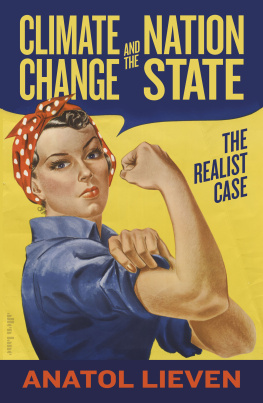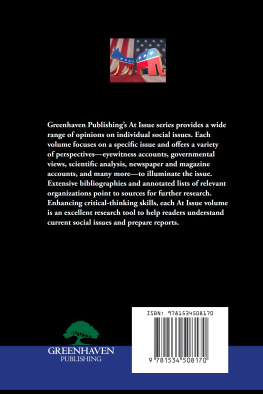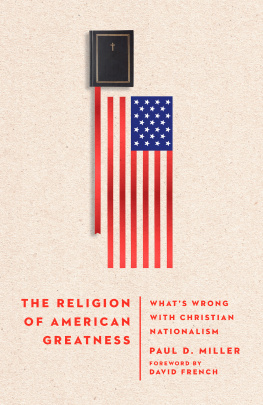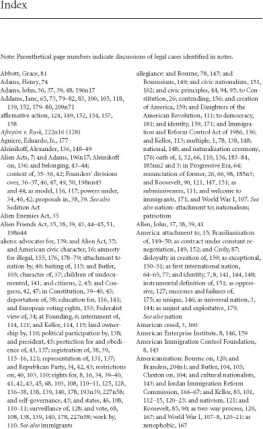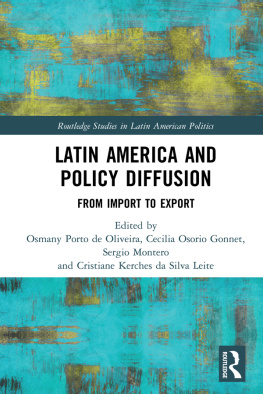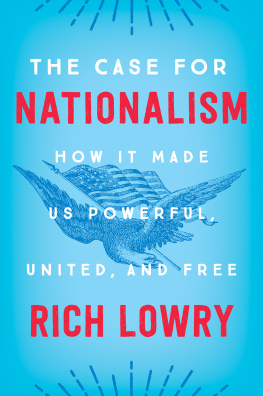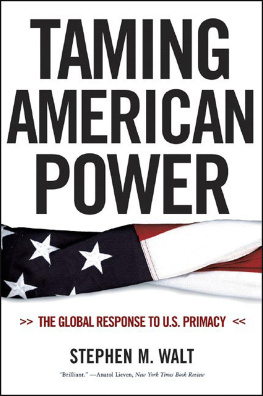America Right or Wrong
America Right or Wrong
Second Edition
An Anatomy of American Nationalism
ANATOL LIEVEN


Great Clarendon Street, Oxford OX2 6DP,
United Kingdom
Oxford University Press is a department of the University of Oxford.
It furthers the Universitys objective of excellence in research, scholarship, and education by publishing worldwide. Oxford is a registered trade mark of Oxford University press in the UK and in certain other countries
Anatol Lieven 2012
The moral rights of the author have been asserted
First Edition published in 2012
Impression: 1
All rights reserved. No part of this publication may be reproduced, stored in a retrieval system, or transmitted, in any form or by any means, without the prior permission in writing of Oxford University Press, or as expressly permitted by law, or under terms agreed with the appropriate reprographics rights organization. Enquiries concerning reproduction outside the scope of the above should be sent to the Rights Department, Oxford University Press, at the address above
You must not circulate this work in any other form and you must impose this same condition on any acquirer
British Library Cataloguing in Publication Data
Data available
Library of Congress Cataloging in Publication Data
Data available
ISBN 9780199660254
Printed in Great Britain by
Clays Ltd, St Ives plc
For Misha, Beloved Distraction
One
An Exceptional Nationalism?
Two
Thesis: Splendor and Tragedy of the American Creed
Three
Antithesis Part I: The Embittered Heartland
Four
Antithesis Part II: Fundamentalists and Great Fears
Five
The Legacy of the Cold War
Six
American Nationalism, Israel, and the Middle East
The most important target of this book is Americans themselves. I hope that in a small way it may do something to influence the policy debate in the United States, by revealing some of the underlying myths and historical, cultural, and ideological impulses that drive U.S. thinking and U.S. policy. However, this book is being published not only in the United States, but in Britain. The first edition was also translated into French, Italian, Japanese, and Korean. I have therefore had to explain in some detail a number of things about the United States that will be familiar to educated American audiences, and for this I ask your pardon.
Many people have generously helped with advice during the writing of this book. It would not have been possible without the unstinting help and support of Natasha Fairweather, of A. P. Watt, who worked tremendously hard to find publishers for a highly controversial manuscript, and was a great source of encouragement and strength in moments of discouragement. I am most grateful to David McBride and his colleagues at Oxford University Press for commissioning and editing this new 2012 edition of the book, and to Tim Bartlett, of Oxford University Press, Michael Fishwick, of Harper Collins, and Charlotte Cachin-Liebert, of Lattes for commissioning and editing the original version.
A great debt of gratitude is owed to Michael Lind and Stephen Holmes, who gave me the benefit of their profound insights into the American tradition, and also encouraged me to persevere with this project. Andrew Bacevich, Bill Maynes, Tom Hughes, Walter Russell Mead, William Pfaff, Norman Birnbaum, Stephen Walt, Michael Kraig, Adam Shatz, Justin Vaisse, Tom Geoghehan, Marina Ottaway, Minxin Pei, and my brother, D. C. B. Lieven, all very generously took the time to advise me on one or another part of the manuscript. On Chapter Six, concerning the U.S.Israeli relationship, David Chambers, of the Middle East Institute in Washington, DC, was of inestimable help, as were Brian Klug, Suzanne Goldenberg, and James Zogby. Responsibility for the statements and arguments made in the book is, of course, entirely my own.
I am grateful to my colleagues in the War Studies Department of Kings College London for their help with the production of the second edition of this book, and in particular to Ashley Lait, whose help with the research was indispensable. I thank Jessica Mathews, president of the Carnegie Endowment for International Peace, for allowing me to embark on the original version of the book, and to my colleagues at Carnegie for their help and support. Rashed Chowdhury and Zhanara Nauruzbayeva worked tremendously hard and diligently on the research. Their intelligence, insights, and perspectives were also a great help to me. Amanda Muller helped gather much information on American domestic politics. Special thanks are due to Kathleen Higgs and the staff of the Carnegie Library. They were not only superbly efficient in procuring books, but extremely patient with a combination of bizarre-sounding requests and extreme lateness in returns.
Finally, my gratitude and love go to my wife Sasha, who bore the twin burdens of a new baby and a book-writing husband with her customary grace, and to my son Misha, to whom this book is dedicated, and who has provided a cheerful background to the writing of this new edition.
America Right or Wrong
America will never be destroyed from the outside. If we falter and lose our freedoms, it will be because we destroyed ourselves.
Abraham Lincoln
This book is an exploration of certain old and deeply rooted features of American political culture that I have grouped together under the term nationalism. It examines these phenomena against the background of four great and interlinked historical developments of the first decade of the twenty-first century: the reaction of the United States to the terrorist attacks of 9/11; the growing social and economic deterioration of large parts of the white working and middle classes; the radicalization of the Republican Party, which I have argued in this book should really be renamed the American Nationalist Party; and the response of the United States to new challenges, above all the rise of China.
The developments are interconnected. The Bush administrations strategy in response to 9/11 reflected old and deep patterns of American attitudes to the outside world, and right-wing American attitudes to other Americans. The wars launched by Bush were coupled with tax cuts that reflected the swing of the Republican Party away from the New Dealbased policies of the Eisenhower and Nixon administrations and toward radical free-market capitalisman economic philosophy that progressively undermined the economic and social standing of the Republicans own white middle class base. These two policies together drove up the U.S. budget deficit under Bush and his successor, Barack Obama, to unprecedented levels, and helped pave the way for the great recession after 2008, which produced a radical downward plunge in white middle class living standards.
The result has been embittered and hysterical politics on the Right in America, which have combined with features of the U.S. Constitution to produce a dangerous stasis in government. Meanwhile, the Bush administrations strategies after 9/11 made it impossible for the United States to mount any serious response to the rise of China.and challenges it geopolitically, this may inflame American nationalism still further, in ways that could endanger world peace.
Next page

